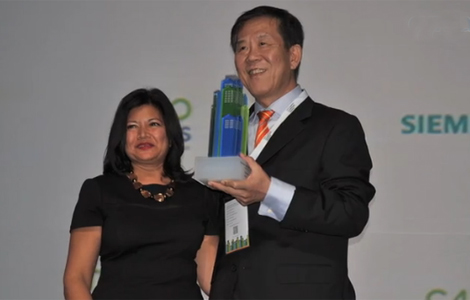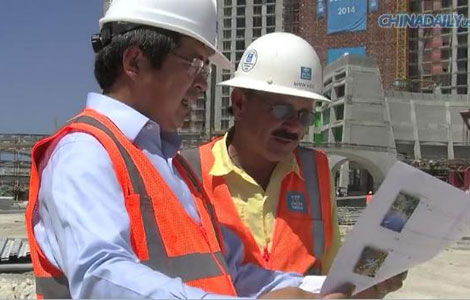HK chief says reform must not abandon law
Updated: 2014-10-13 03:24
By KAHON CHAN in Hong Kong(China Daily)
|
||||||||
Hong Kong Chief Executive Leung Chun-ying maintained that the city government will not talk to student protesters "for the sake of talking", since the Basic Law provisions and decisions of the top legislature cannot be abandoned to meet the students' demands.
The Hong Kong government shelved talks with the Hong Kong Federation of Students last Thursday amid the protest organizer's threat to hold bigger protests if their demands are not met, such as "overturning" a resolution adopted by the National People's Congress Standing Committee.
In a TV interview aired on Sunday, Leung said that his administration decided to not engage in the talks for now, since the student activists have not been clear and consistent with their expectations. For instance, he ruled out any possibility of the country's top legislature going back on its decision.
"We don't talk for the sake of talking. We are going to talk, hoping to implement the universal suffrage election in 2017. But if the premise is to abandon the Basic Law and the decisions of the NPCSC, I believe we all know the prospect is almost nil," said Leung.
Sunday marked the beginning of a third week of the impasse, as unlawful protests continued to block thoroughfares around Hong Kong. The local police called upon protesters to "reduce" their occupation area, warning against attempts to hinder removal of barricades by police.
But clearing the rallies by force will be a last resort, said Leung.
"We don't want any people, especially young students, to get hurt."
He disagreed with foreign media's labeling of the protest as "revolution", believing that protesters are spontaneous, but that also means they are not under anyone's command.
As hard-line activists defied calls to leave the asphalt, the city's population of over 7 million suffers. Around 160 bus routes were suspended or diverted on Sunday. Retailers and restaurant owners in the downtown areas are also becoming cash-strapped as revenues plummet.
Leung called for reflection from participants in the unlawful assemblies.
"We know about the democratic aspirations of the occupiers. But even if they are willing to sacrifice, they shouldn't sacrifice or infringe the rights of others."
Raymond Tam Chi-yuen, secretary for constitutional and mainland affairs, questioned whether the protesters had taken others' rights into account when they set up barricades on the trunk roads.
Tam also lambasted the protest leaders for an inconsistent narrative on their demands, which has dampened liaison efforts made by senior officials and political leaders. It is time, he told reporters in Guangzhou, for the students to ponder what to do next to serve the long-term interests of Hong Kong.
Financial Secretary John Tsang Chun-wah, concluding his official trip to the US, wrote in a weekly blog that he has heard good words about the city's restraint and tolerance in the face of the sheer inconvenience caused by the blockades. But he admitted he could not foresee what would happen next.
"I think it is time for them to leave the streets," Tsang wrote, worried that a prolonged protest would lead to sharper conflicts that might considerably shake the city's foundations and values, such as stability of the financial market and the rule of law.
kahon@chinadailyhk.com
- Growth in mainland tourists to Hong Kong slows
- Tyranny of minority in Hong Kong takes its toll
- Hong Kong people can learn from Singapore
- Hong Kong's Occupy Central participants urged to reflect
- Hong Kong artist connects East and West with art
- Singapore FM notes Western media bias on Hong Kong
- Some protesters in Hong Kong decide to withdraw, classes to resume
- HK stability vital for development: former governor of Macao
- HK protesters have no valid grievance
- China denounces US support for HK protest
- Chinese premier says HK govt able to keep HK safe
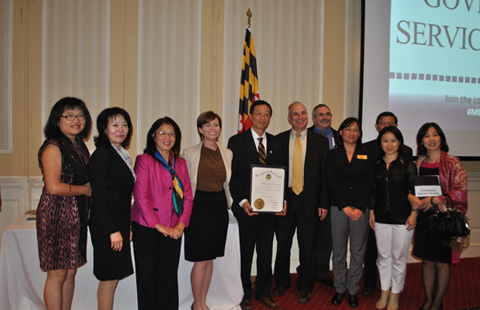
 School honored by governor
School honored by governor
 Joint Scorpion venture soars in ratings
Joint Scorpion venture soars in ratings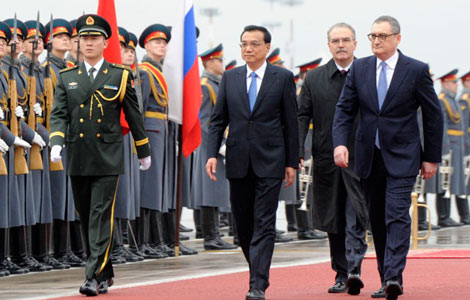
 Li opens doors on trade, energy
Li opens doors on trade, energy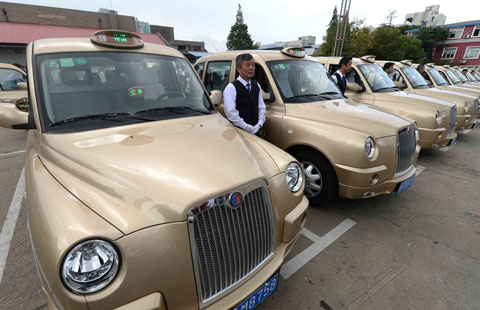
 Shanghai launches old-style cabs for special needs
Shanghai launches old-style cabs for special needs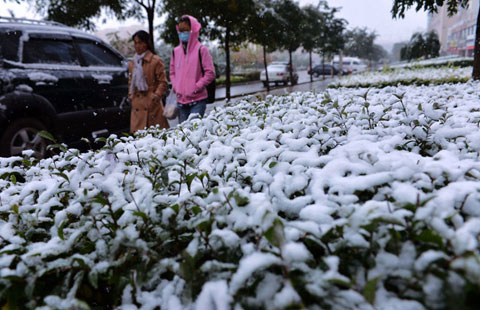
 Cold wave brings first snowfall this autumn to Gansu
Cold wave brings first snowfall this autumn to Gansu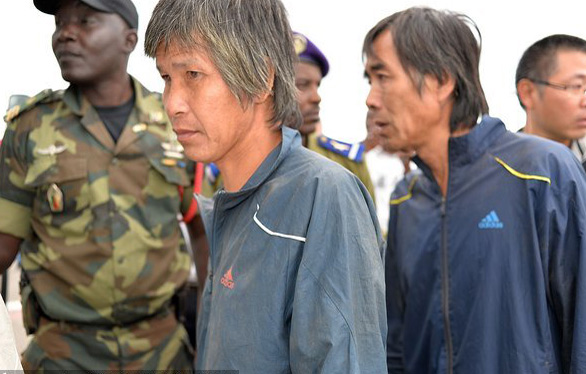
 27 Chinese hostages freed in Cameroon
27 Chinese hostages freed in Cameroon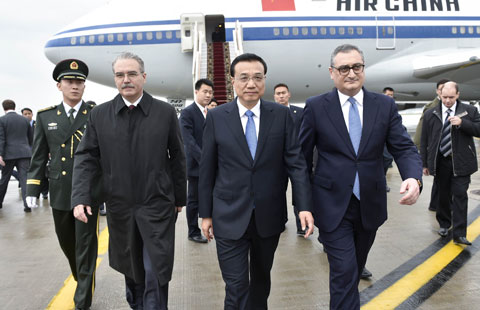
 Premier Li begins his Russia visit
Premier Li begins his Russia visit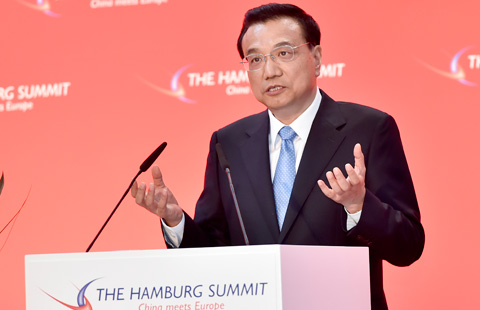
 Li says focus is on long-term growth
Li says focus is on long-term growth
Most Viewed
Editor's Picks

|

|

|

|

|

|
Today's Top News
Joint Scorpion venture soars in ratings
School honored by governor
China's slowing growth will impact LatAm
Li opens doors on trade, energy
China, Brazil relations grow stronger
Texas health care worker tests positive for Ebola
HK chief says reform must not abandon law
1,552 new dengue cases reported in Guangdong
US Weekly

|

|
